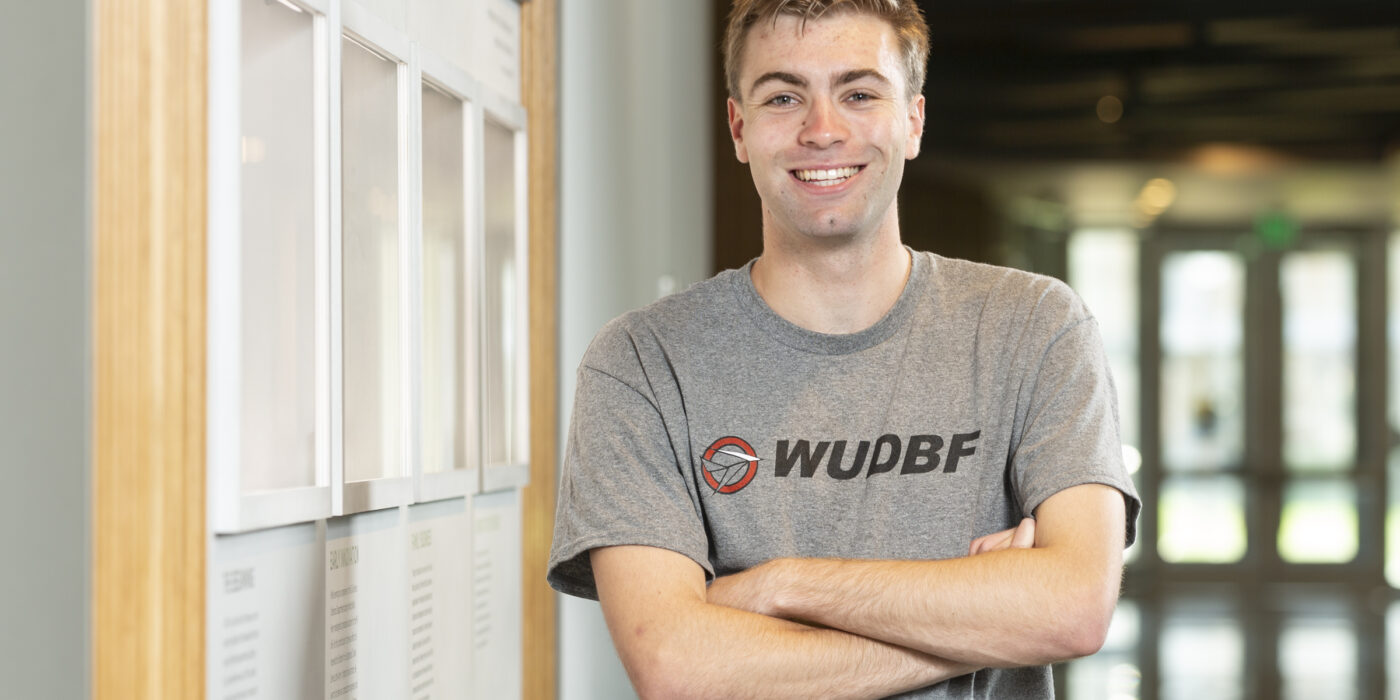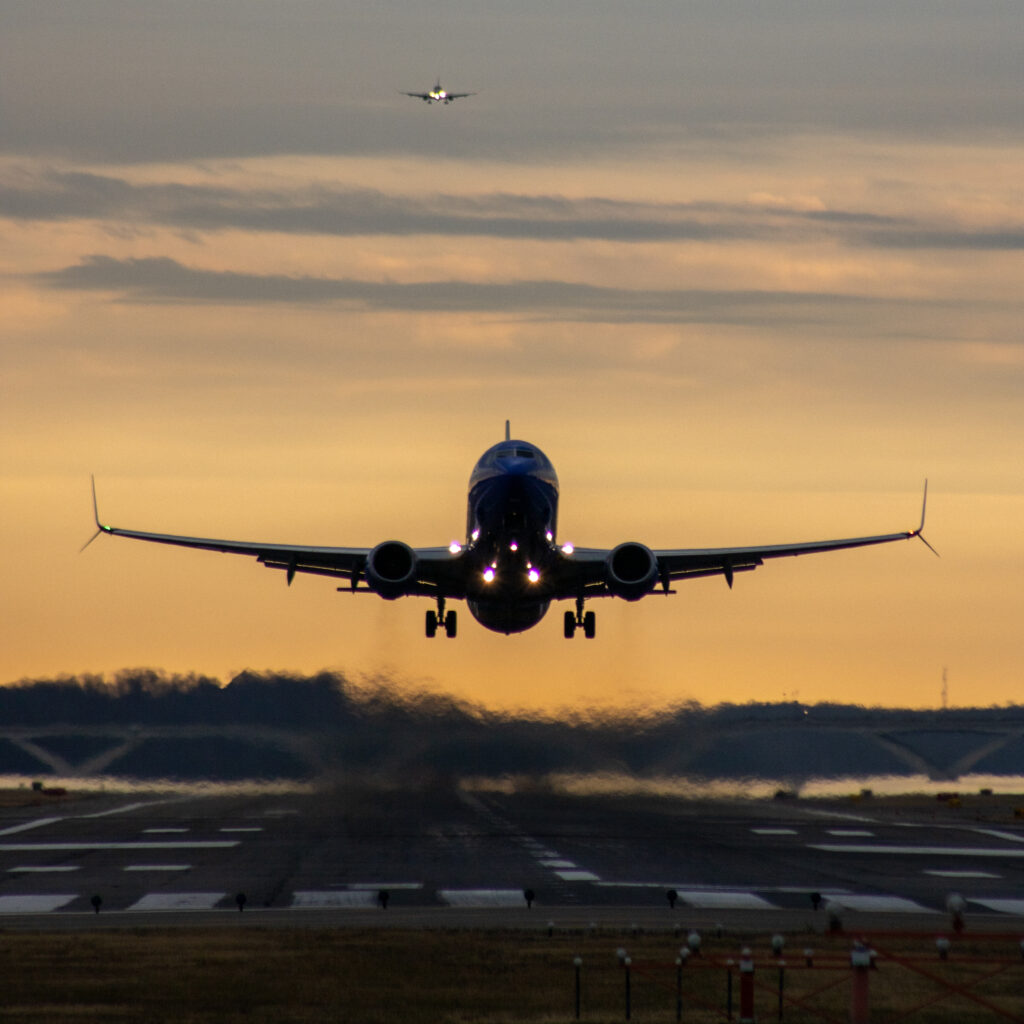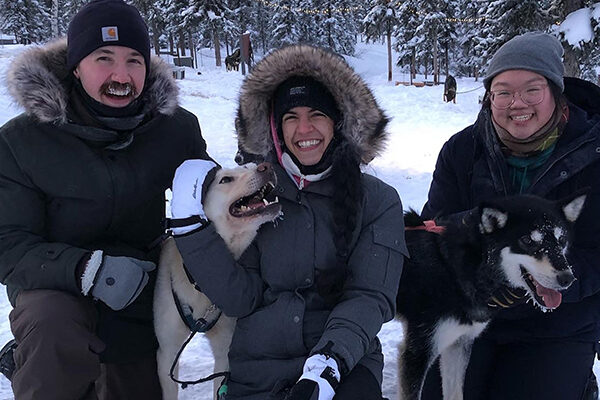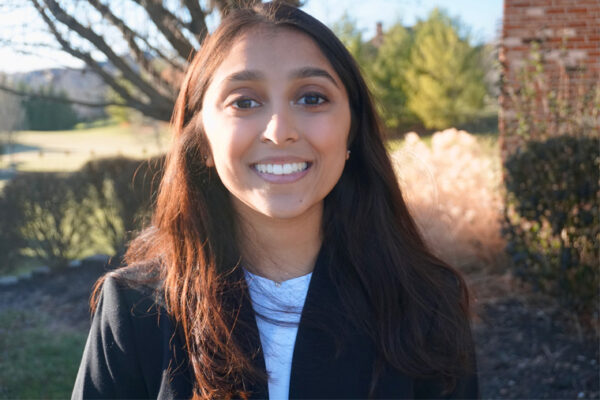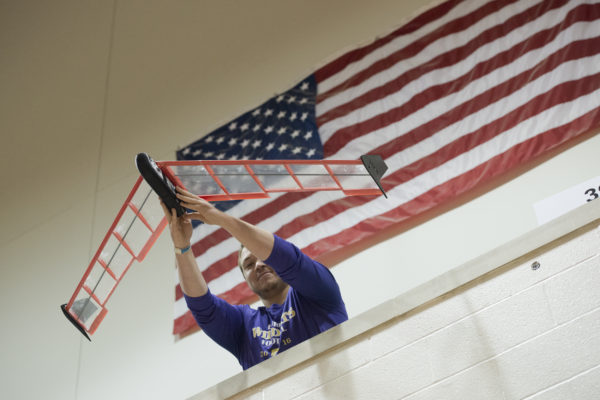To some people, an airplane symbolizes getting away, maybe even escape, but Miles Petersen has a different perspective.
“I think flying is pretty incredible. Seeing a plane flying above me is just magical,” he said. But he doesn’t imagine getting away from it all. “Planes play a positive role in today’s world,” he said. “They connect people. They bring families together.”
Petersen expects to graduate this spring with a bachelor’s degree in mechanical engineering from the McKelvey School of Engineering and — no surprises here — a minor in aerospace engineering.
For Petersen, planes connect him to fellow aerospace enthusiasts; they connect his life in St. Louis to his friends and family back in his native Delaware; and planes connect his past to his future, a future working at aerospace giant Boeing Co. in Seattle.
Petersen cannot recall a time when he wasn’t crazy about planes. “I’ve always loved the window seat,” he said. In high school, he asked for an aerospace engineering textbook for his birthday — a book he still has within arm’s reach.
When he came to WashU, Petersen didn’t waste any time, joining a Design Build Fly (DBF) team freshman year. Hosted by the American Institute of Aeronautics and Astronautics, DBF is an annual competition, each year with different themes but always the same goal: “We come together to figure out an approach, design an airplane, and then we fly it.”
The plane briefly flew … and then crashed. Still, Petersen recalled it as one of his most exciting WashU memories. “One of the most rewarding experiences was when I saw our plane freshman year and the tail of the airplane was the shape I had designed it to be. It was amazing to see my work as part of a larger piece.”
Despite the crash, he kept with it, even becoming administrative president of DBF. In the meantime, he also won the Linda Kral Prize for Outstanding Accomplishments in Aerospace Engineering and was elected into the Pi Tau Sigma Honorary Mechanical Engineering Society.
This year, Petersen said, the first iteration of their plane didn’t fly. “But we rallied together, rebuilt it to gather data, and we had one of the most successful days in the club’s history,” he said, with 10 successful flights and landings.
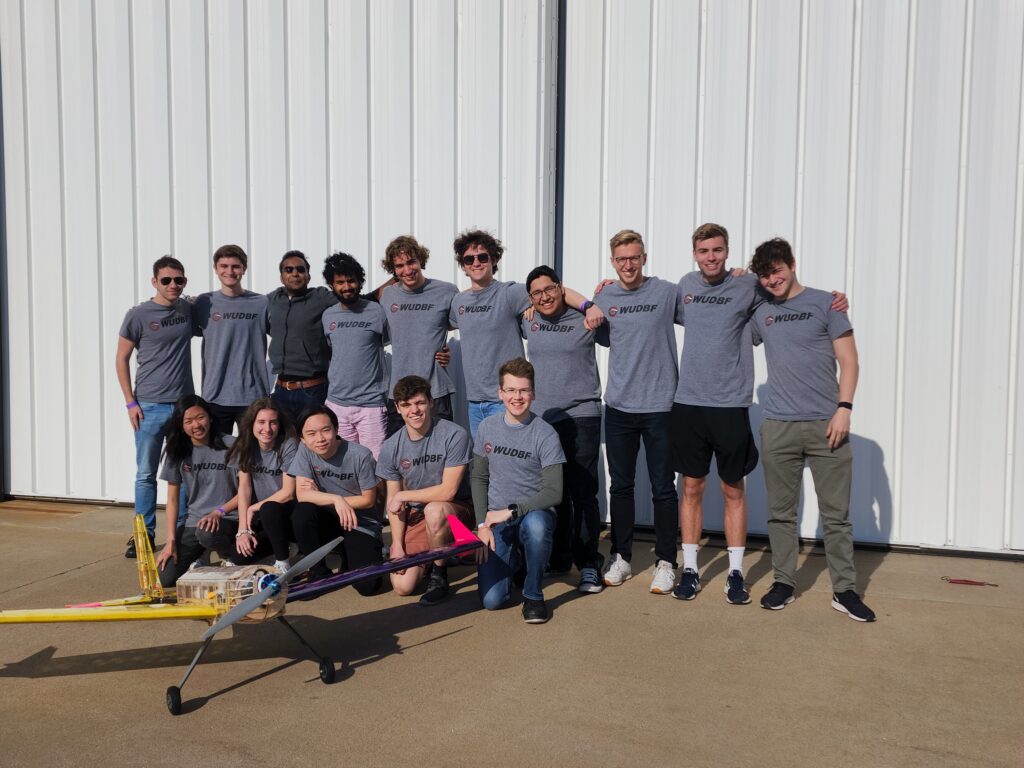
At the national competition, held in May, the team scored its best-ever finish, placing 11th out of about 100 college teams from across the country.
Petersen’s background doesn’t necessarily shout aerospace engineer. His parents are in the humanities, both art historians. They have been nothing but extremely supportive, Petersen said. “That being said, I think my dad may wish I’d taken more humanities classes.”
His next stop is Seattle, where he has secured a job with Boeing as a weight engineer, ensuring that components of planes are balanced and not overweight.
“I’ve always had the end goal of working in the aviation industry,” he said. “It’s sort of surreal. I can’t wait to get started.”
